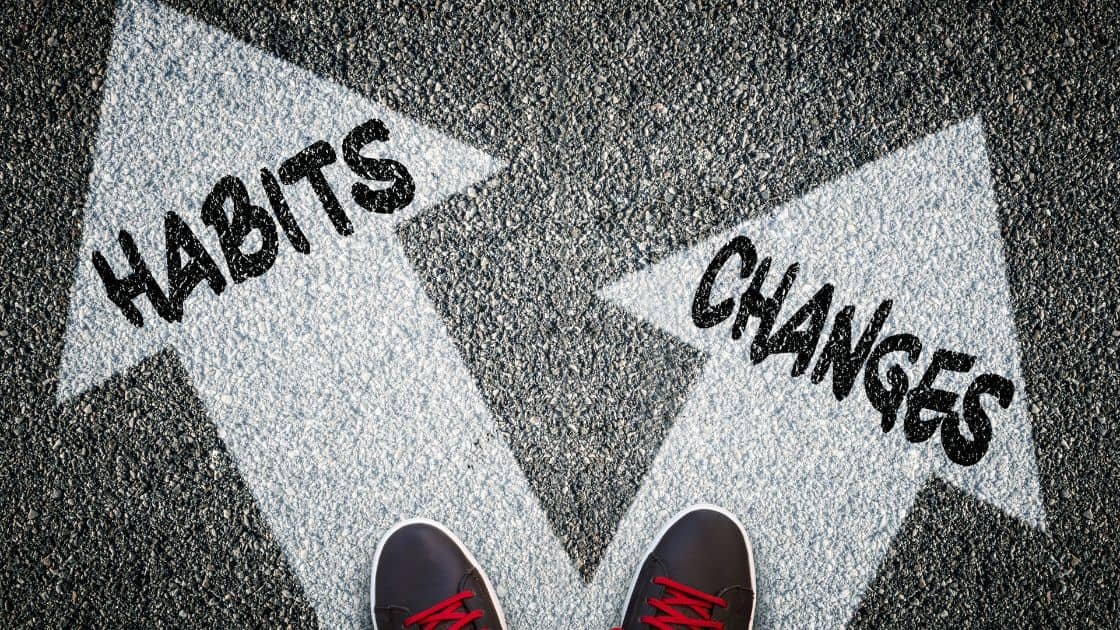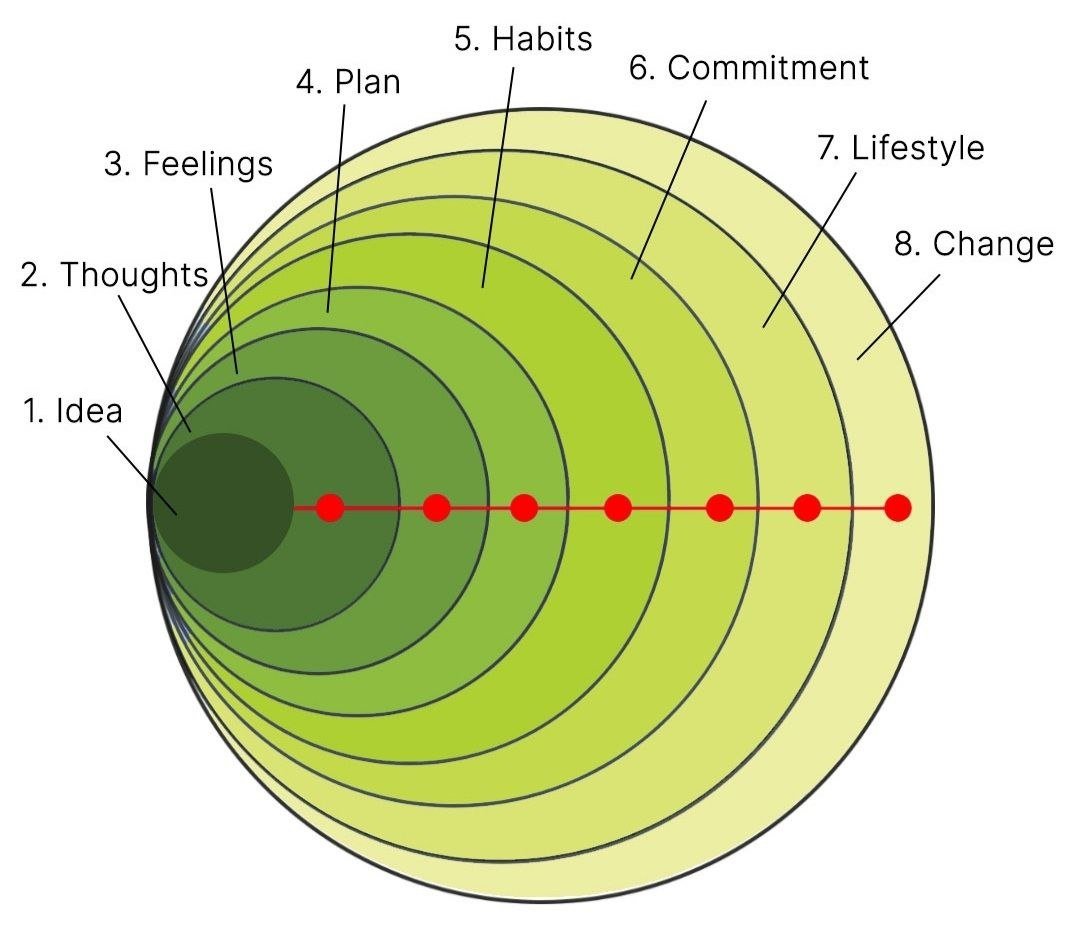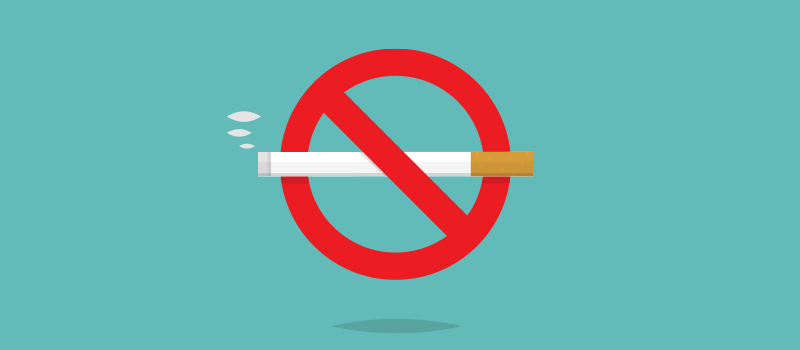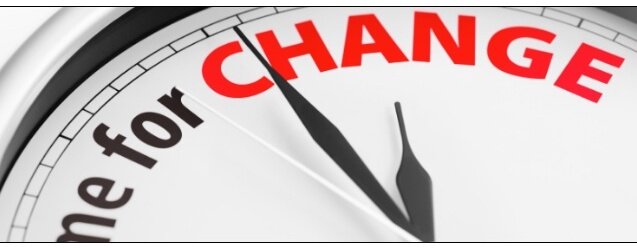A few weeks ago when I was in London, I heard this statement: “You don’t rise to the level of your goals; you fall to the level of your systems.” I thought it was time to take a deeper dive.
If you’re struggling to improve a situation, the issue isn’t you, it’s your system. Change doesn’t fail because we lack the desire to change; it fails because we’re working with the wrong system. We are often told to be more ambitious, set bigger goals, or think bigger. While thinking big has its place, setting a goal is actually the easy part. The hard part is building a system of behaviours that consistently move you toward that goal. A goal is simply a desired outcome, a target, and on the other hand, your system is the collection of daily habits you follow. I think if there’s ever a gap between your goal and your system, your daily habits will always win. By definition, your current habits are perfectly designed to deliver your current results.
The next exit
I think to effect real change in the DEI space, we are going to need a two-pronged approach: legal solutions and a plan to shift cultural norms. Cultural change requires long-term vision and multiple strategies. Diversity training, when thoughtfully designed to address the needs of schools, universities, workplaces, and society at large, especially if it incorporates a visual component and is repeated over time has the potential to foster greater collective harmony. It can serve as a vital tool for advancing pluralism. Let’s approach diversity training with an open mind, recognising that it is a work in progress. While it may never be the most exciting endeavor, its impact could be profound.
How change is created
I think change is created by a combination of ideas, thoughts, feelings, plans, habits, commitment, and lifestyle. New ideas and thoughts spark innovation, while emotions like hope and determination motivate action. Planning provides structure, and developing positive habits supports sustained progress. Commitment ensures persistence, and adopting a new lifestyle embodies and reinforces the desired transformation.
It's a long game
Research has shown that by simply providing information doesn't necessarily lead to behavioural change. I think while knowledge is valuable, changing behaviour often requires more than just information as human behaviour is complex, influenced by various factors beyond mere awareness. Effective behaviour change often involves a combination of factors for example, motivation, context, emotional connections, support systems, and practical tools or strategies.
“A large part of economic success is based on trust, in other words, do people trust you to fulfil your promises. ”
Adopting a new strategy
The changes we see in the global landscape is changing the way our clients do business, causing the reimagination of whole industries, increasing customer expectations and behaviours, and creating a whole lot of uncertainty. What we do in sales is help people and companies change, we change the products and services they use, and we change the way they use these products and services. And when we perform at our very best, we help our clients and the people we serve to transform their businesses and their results. The change process is non-linear because any process that includes human beings, especially in groups is non-linear. This means that the process is very rarely a straight line, and very often a process that doubles back over ground it has already covered - stops, starts again and then picks up in an unexpected place or direction again. Is your sales process is designed and written in a linear form?
Catalyst for further transformations
We live in an ever-evolving world, change is constant. I think the preferences and behaviours of our customers have already changed, and will continue to change and change itself will drive even more change. Sales leaders need clarity on what and how customers are buying so that sales can adapt just as quickly – at every level.
Be the change you want to see
What is mindful blindness?
Mindful blindness is when human beings including institutions turn a blind eye to the truth to feel safe, reduce anxiety, avoid conflicts, and protect their prestige and reputations. There are several factors that contribute to mindful blindness, these may include cognitive biases such as confirmation bias, which leads individuals to seek out information that confirms their pre-existing beliefs and ignore contradictory evidence. Other factors include social pressures, fear of consequences or reprisals, groupthink - a phenomenon where group members prioritise consensus over critical thinking - and the desire to maintain a positive self-image or protect one's reputation.
The consequences of mindful blindness can be far-reaching and hinder personal growth, impede decision-making processes, prevent the identification and resolution of problems, and perpetuate harmful behaviours or practices. In organizational settings, mindful blindness can lead to unethical conduct, negligence, and even legal violations. At a societal level, it can contribute to systemic issues, such as discrimination, corruption, and social injustice. I think that to address mindful blindness will require individuals and institutions to cultivate a willingness to confront uncomfortable truths and acknowledge the limitations of their perspectives. And this involves promoting critical thinking, fostering open and transparent communication, encouraging diverse viewpoints, and actively seeking out and considering different sources of information.
Kicking a habit
I think developing a conviction to change is a crucial first step towards making lasting changes. This conviction can then transform into a strong determination to change, which will motivate you to make sustained efforts towards implementing that change. Take the example of quitting smoking - you need to be aware of the harmful effects of smoking, and then increase your awareness until you firmly believe in the need to quit. This conviction will further strengthen your determination to quit, and ultimately, you will need to make a conscious effort to establish new habits. In this context, education and learning play an important role as they can help you develop the conviction and commitment needed to make lasting changes.
Contact me via e-mail to book a meeting where we can anaylise your goals, objectives and results.
It becomes a different thing
““Change your story, change your life. Basically, that’s what it is.” ”
In B2C decision making we are trying to minimise the risk of regret and in B2B decision making, we are trying to minimise the risk of blame. If you change the story about something, you change its meaning and if you change the meaning, you change our visceral response to it, and if you change our visceral response to it, you basically change our evaluation of it. This is essentially how decision-making works. Things are not things, we respond to things in a context from which we derive meaning, the meaning derives an emotion, the emotion drives a behaviour, and the behaviour then drives an act of post rationalisation.
It sounds like
One of the reasons why people resist change is because they focus on what they must give up instead of what they have to gain. In business, money is money, and time and services are also money. When people get more value, they will do more, pay more and give more in return. I think that it is possible to change the world, but to change the world, you have to change yourself first.
A deep human focus
There may be things present in our lives and our habits that we are not happy about. We want change, yet as hard as we try, sometimes, we are just not seeing the level of profound change we desire. Is there an area of your life you’ve tried changing, made some progress but somehow ended up in the same spot you started in? Real behaviour changes are very difficult to bring about by effort and willpower alone. Contact me via e-mail for 1:1 consultations.
“There are things known and there are things unknown, and in between are the doors of perception.”
Don’t be selfish
Everyone understands the need for change in the abstract, but on the day-to-day level people are creatures of habit. Human psychology contains many dualities, one of them being that even while people understand the need for change, they are also irritated and upset by changes that affect them personally. A change that upsets core habits and routines are deeply disturbing to them. To soothe the anxieties of those who dread change, one should create a new set of values and rituals to replace the old ones.
Every value in life must be paid for and those that pay are the ones that get it. Do you need some good ideas to change your life for the future? If you want good ideas then you have to go to the workshops and training courses where good ideas are being taught. Be well prepared, so when opportunity comes along it will pass by the person or organisations who are not prepared. Contact me via e-mail for workshops and training based around about mastering the science of achievement and the art of fulfilment.
Everyone is looking for answers
Yesterday an accountant asked me a question, “What is marketing for?”
My answer went a little like this: “I think marketing is about making change happen. Marketing works, therefore, as marketing professionals then each and every one of us are responsible for the effects and side effects of what we do.”
Accountant: “Who do want our customers to become?”
Me: “Marketing is the act of going into the world with intention to make a change happen. I use marketing to convert non-customers into customers. Sometimes, I help my customers become the person(s) they seek to be, and I help to create an environment that I think my customers want to see happen. Turning people from this to that!”
Accountant: “What are you going to spend all this time and money trying to do?”
Me: “I seek to help you become somebody who can make the change in the world that you want to be responsible for and be proud of. I seek to make an impact and clarify to the market the direction you are heading, leveraging the activity by using marketing tools to make a change happen.”
You are reading this because you are a passionate and caring human being. Contact me via e-mail and tell me about the change you are trying to make for your organisation.
Life = C+C+C
The pandemic has exposed and increased inequality worldwide, leaving many to struggle for a basic level of economic security. Many people, myself included, have begun to reevaluate what makes life worth living. The things I’ve missed and appreciated the most are friends, family, experiences, nature, connection. I really hope that people have gained new values, and used this time to stop and think about the meaning of life. And ask themselves about what they would like to achieve both personally and professionally. What do you want to do with your life?
I recently lost my mother and whilst writing both her obituary and eulogy, I questioned myself about the meaning of life. In her honour, I have already begun to make changes in my life, for example, saying no and being far more selective about how I spend my time and with whom. I think that we all have the ability to transcend our egos, connect with other people and contribute to society.
Growth is a process!
There is always room for improvement as you do not just wake up and become a beautiful butterfly (egg > caterpillar > pupa > butterfly). The process is called metamorphosis, a Greek word that means transformation or change in shape.
I think effective communication is when you are really good at delivering the message concisely. We all have a sales process, but in reality, we are not going to dictate to the buyer without creating an incentive for them to bow to our sales process. I always ask myself, “What is the 1% that I want the buyer to walk away with?” Being an effective communicator through stories is an ideal way to differentiate and may lead to the buyer relaying your story to the end-users. This is a skill that I am constantly trying to master - slowing down to speed up.
Sales is a profession and you have to put in the work just like a professional athlete. In sales the outcome is not solely based on the performance, sometimes the performance can be awesome and the outcome mediocre. It’s incredibly valuable to evaluate your sales calls and process. Contact me via e-mail to arrange a meeting or workshop about building your sales process and self reflection tools.
Juggling many plates
via The Guardian
A few years ago, one of my good friends in Brooklyn switched me onto Dr. Joe Dispenza’s book, “Supernatural”. Being supernatural means overcoming challenges and conditions in your outdoor environment that most people would not be able to accomplish. Supernatural also clarifies the state of being in which you are able to change your body by thought alone to say it another way it means being greater than your body. Many people want to think positively but they are feeling negative, they want to live their dreams and have an exciting future but they feel unworthy. And this means that their body and mind are in opposition. We have to recondition the body in order to create a new mind. How many people do you know who have memorised suffering? I think what they are really saying is no matter what happens, no person, no thing or experience can move them from that state.
The combination of how you are thinking and how you are feeling is called the state of being. We have three brains that allows us to go from thinking to doing, to being. The first brain is called neocortex and allows us to decide on the action to focus our concentration to invent to speculate to have intention or attention. The second brain called the limbic brain which makes a chemical that is called a feeling or an emotion. The third brain is called the cerebellum and it’s responsible for you beginning to develop what’s called implicit memories or non-declarative memories where you have done something so many times that you no longer have to consciously think about it.
Most people wait for crisis, or trauma, or disease, or loss, or diagnosis to really want to change. They wait to the point where ego is brought to such a low level that they cannot go on 'business as usual’ any longer. That’s when we begin to look at how we’re thinking, or what emotions we are living by. My message is: Why wait? We can learn to change in a state of pain and suffering, which tends to be the human model, or we can learn to change in a state of joy and inspiration. Contact me via e-mail if you are interested in change as every time you learn something new, your brain physically changes.
Will you be the passenger or the driver in your life journey?
Do you believe that the way you think has an effect on your life? According to neuroscience, your brain is organised to reflect everything you’ve known in your life, your brain is a record of your personal environment and an artefact of your past. The big question: Does your environment control your thinking or does your thinking control your environment?
We could say that you were thinking the same thoughts, performing the same actions that create the same experiences and emotions, but secretly you expect something to change in your life. Now as the environment turns on different circuits in your brain you will begin to think equal to your personal environment. As you see the same people and go to the same places at the same time, it’s the external environment that’s turning on the different circuits in your brain, causing you to think equal to everything you know. And as long as you think equal to everything that is familiar or known to you, you will keep creating more of the same.
“We cannot solve our problems with the same thinking we used when we created them. - Albert Einstein”
To change is to think greater than your environment and every great person in history know this. They all had a vision, they all had an idea - they couldn’t see it, they couldn’t smell, taste or feel it but it was alive in their minds. It was so alive in their mind that they began to live as if that reality was actually happening now. So can you believe in a future that you can’t see or experience with your senses yet? But you have thought about it enough times in your mind that your brain is literally changed to look like the event has already happened? Neuroscience says it’s possible. Contact me via e-mail to arrange a personal meeting.
Intentions mean more than actions
I believe that intentional action sometimes called design thinking saves a lot of time and energy. Part of what we do as a creative is to look at who do we seek to change and what change to we seek to make for them? And then we have to make it for those people.
Design thinking in a nutshell is encapsulated with these three questions:
Who’s it for?
What’s it for?
And how will I know if it’s working?
These questions are essential, and if you don’t ask yourself them then you’ll probably end up stumbling around in the dark looking for solutions.
If you want to learn marketing you do it by doing marketing, by taking action. Reading marketing books and an internship is all well and good, I think you would be better off to figure out how you want to make a change happen and then do it. This is because if you get good at marketing there will be a lot of people who will want you to help them.
Above and beyond
It’s important to look at the system, as too often people who would like to make change forget to look at the system. I have been observing systems throughout my life without realising what I have been seeing. How are we going to create a new system that is going to put the right energy into education so over time we will have more people looking like me in the system?
If you are frustrated at how your marketing is currently working, it’s probably because you are using the wrong system. It’s really hard to change the system by just changing the elements within it. I think it’s far more powerful to change your purpose.
Time for change
When you need information that you don’t have, you are usually not aware that you need it. If you only have partial information, you will make the best story possible with the information you have - and your confidence will be determined by the coherence of that story.
Marketing is what we do when we want things to be different, for example, to change the culture or to change the behaviour of our target audience. When you are comparing brands with each other, you may have generated external preferences by association or memory, not only because of what you see in the given moment. What you see in the moment may make you think of the other brand, therefore, you be aware that the influence of context is really powerful and extremely easy to exaggerate.
I think marketing is the work of telling a story that is true to someone specific. And this story will help them to see the world differently and/or take a different action. This is because the only purpose of marketing is to make a change. Nowadays marketing should be a generous act of leading people towards the change you want to make. Contact me via e-mail for specific guidance on:-
a) Who’s it for?
b) What are the changes you seek to make?





















